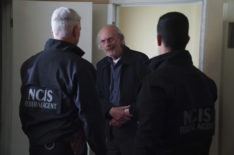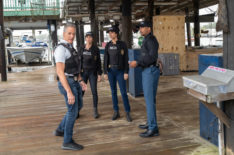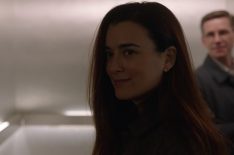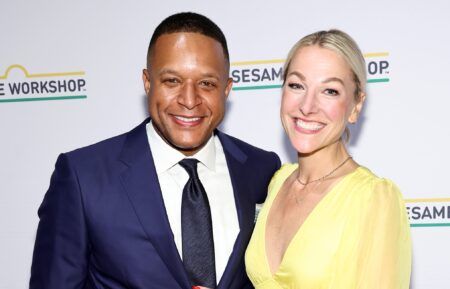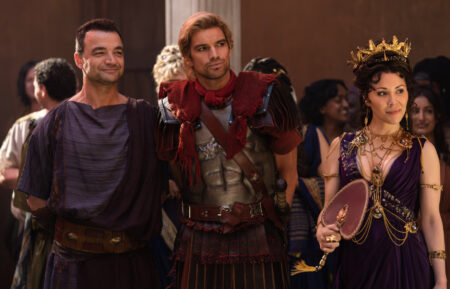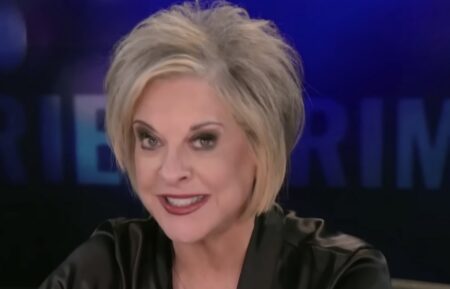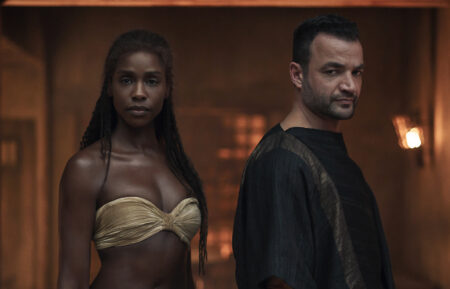‘NCIS’ Producers on Gibbs’ ‘Softer Side,’ Episode 400 & Ziva’s Season 17 Return
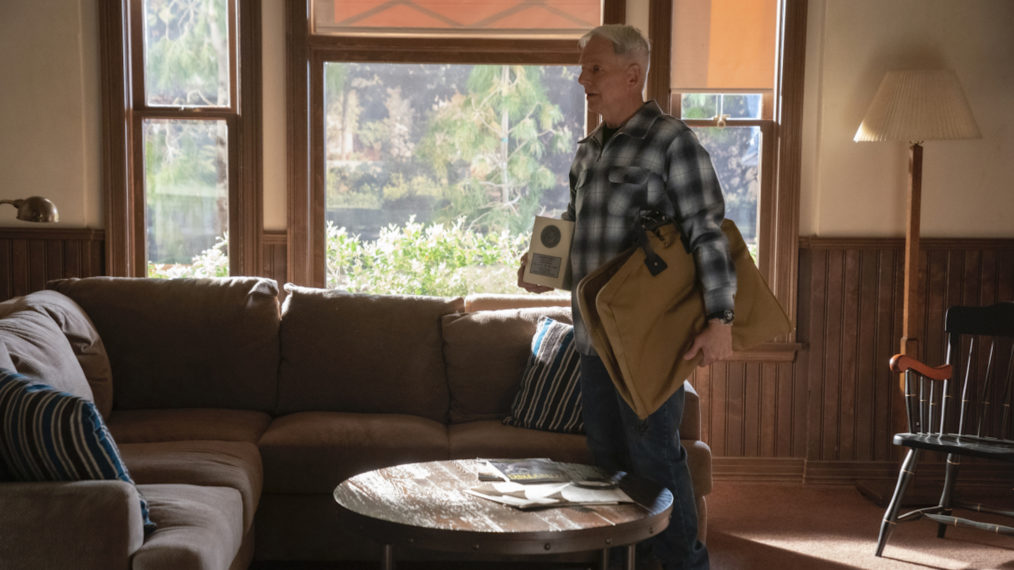
Q&A
[Warning: The below contains MAJOR spoilers for the Season 17 finale of NCIS, “The Arizona.”]
It wasn’t meant to be the finale, but “The Arizona” did allow NCIS to end its 17th season on a quiet, reflective, and quite emotional note, with one of the best episodes of the series.
Gibbs (Mark Harmon) and the team were tasked with proving 95-year-old Joe Smith (guest star Christopher Lloyd) served on the U.S.S. Arizona during the attack on Pearl Harbor — by Joe himself, if they wanted him to return a Purple Heart belonging to an admiral’s daughter. Joe refused to talk about that day, until Gibbs left him no choice.
That interrogation room scene — heartbreaking and one of the best of the season — was a bit reminiscent of Season 2’s “Call of Silence” with Charles Durning. “It wasn’t intentional, but I’ll take that as a high compliment because I think that is just a wonderful episode and definitely a favorite,” co-executive producer and the episode’s writer Gina Monreal told TV Insider.
In the end, the team was able to prove Joe’s claim, sadly after his death. They were able to match a piece of shrapnel in his arm to a part of the ship on display in a museum. (And they found the Purple Heart as well, in a vent in the admiral’s house.) Joe got what he wanted: his ashes interred on the Arizona, with Gibbs in attendance. That ending may have reminded you of “Honor Thy Father,” which ended the drama’s 11th season with Gibbs burying his father.
“[‘The Arizona’ is] definitely a tip of the hat to the Gibbs-Jackson Gibbs relationship,” Monreal noted. “You’ll see Gibbs throughout this episode looking at his bracelet, which he wears in honor of his father. Sloane says to him, ‘World War II vets like your father.’ Gibbs is saying, ‘I know how these guys are, they hide everything.'”
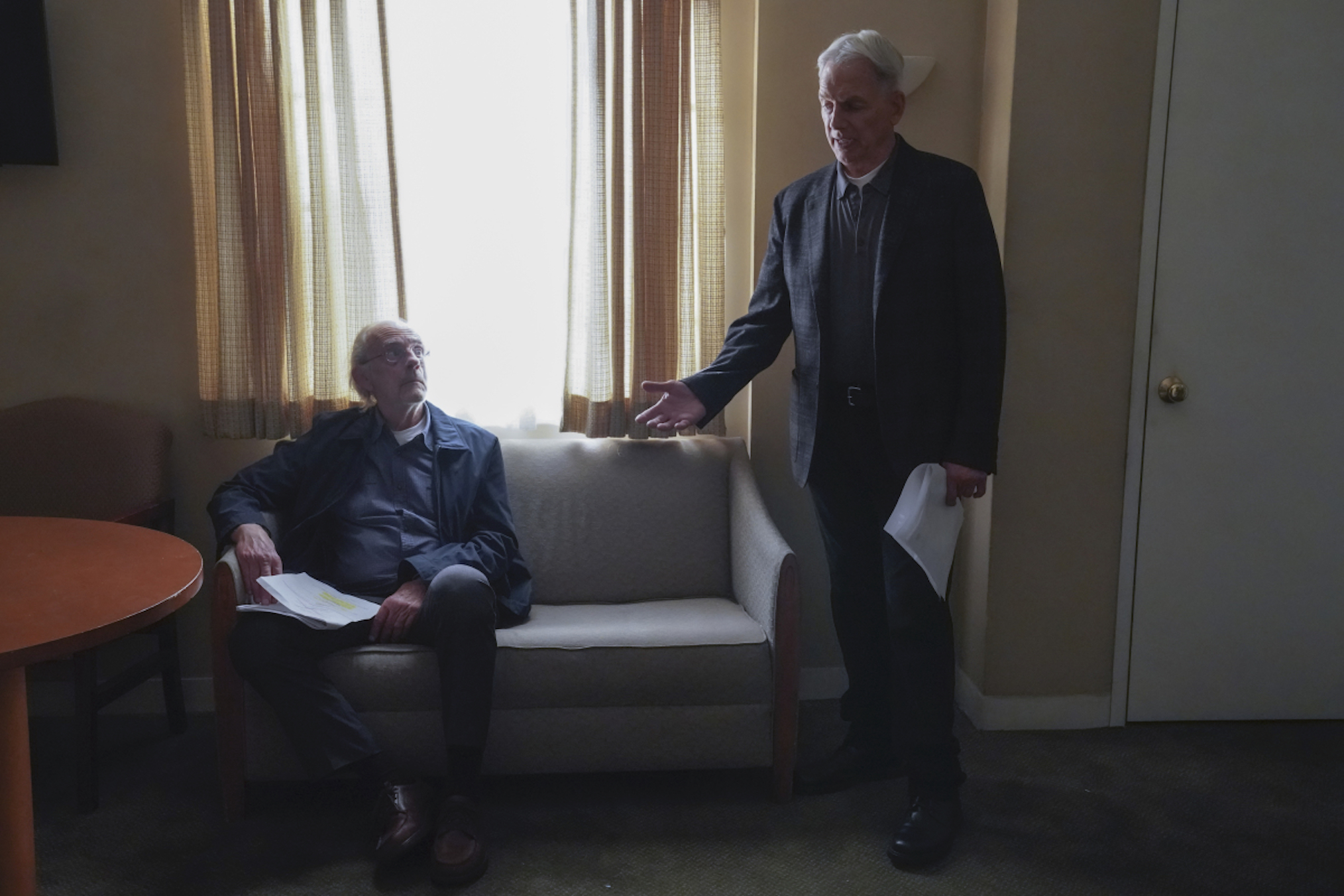
(Michael Yarish/CBS)
While the others questioned how much of Joe’s story they could believe — especially once they learned that he was in the early stages of dementia — Gibbs did not. “He’s seeing his father in this man, and that’s what allows Gibbs to see Joe in a different way than our other characters are seeing him, in a deeper way,” the writer added.
And Gibbs even took Joe’s advice to talk about what he saw in the war, sitting McGee (Sean Murray) down at the end of the episode. “What I saw in Kuwait, before that I was different. It took something from me. It’s what war does,” Gibbs admitted.
“You come home and you’re like half a person. The other half of you’s still back there, where at least it made sense. Where even with the bullets and the blood and the chaos, you knew what mattered,” he continued. “You knew that the guy next to you was willing to die for you and you for him. And you look around and think, it shouldn’t take a war to make the world that simple.”
Here, Monreal and executive producer Frank Cardea tease what’s next in NCIS‘ 18th season (though it has not yet been officially renewed) and plans for the milestone 400th episode.
When Gibbs opens up to McGee, I couldn’t help but think about how much McGee has grown, from probie to senior field agent. Can you talk about what you’ve been doing with McGee and how we’ll continue to see things like that?
Gina Monreal: Frank actually created the character of McGee.
Frank Cardea: My former partner, George Schenck, and I, our first episode was Episode 7 of Season 1, and that was the introduction of Timothy McGee. It’s unfortunate, one of the episodes we didn’t get to shoot was a McGee-Delilah episode, so that’ll be shot early on next year.
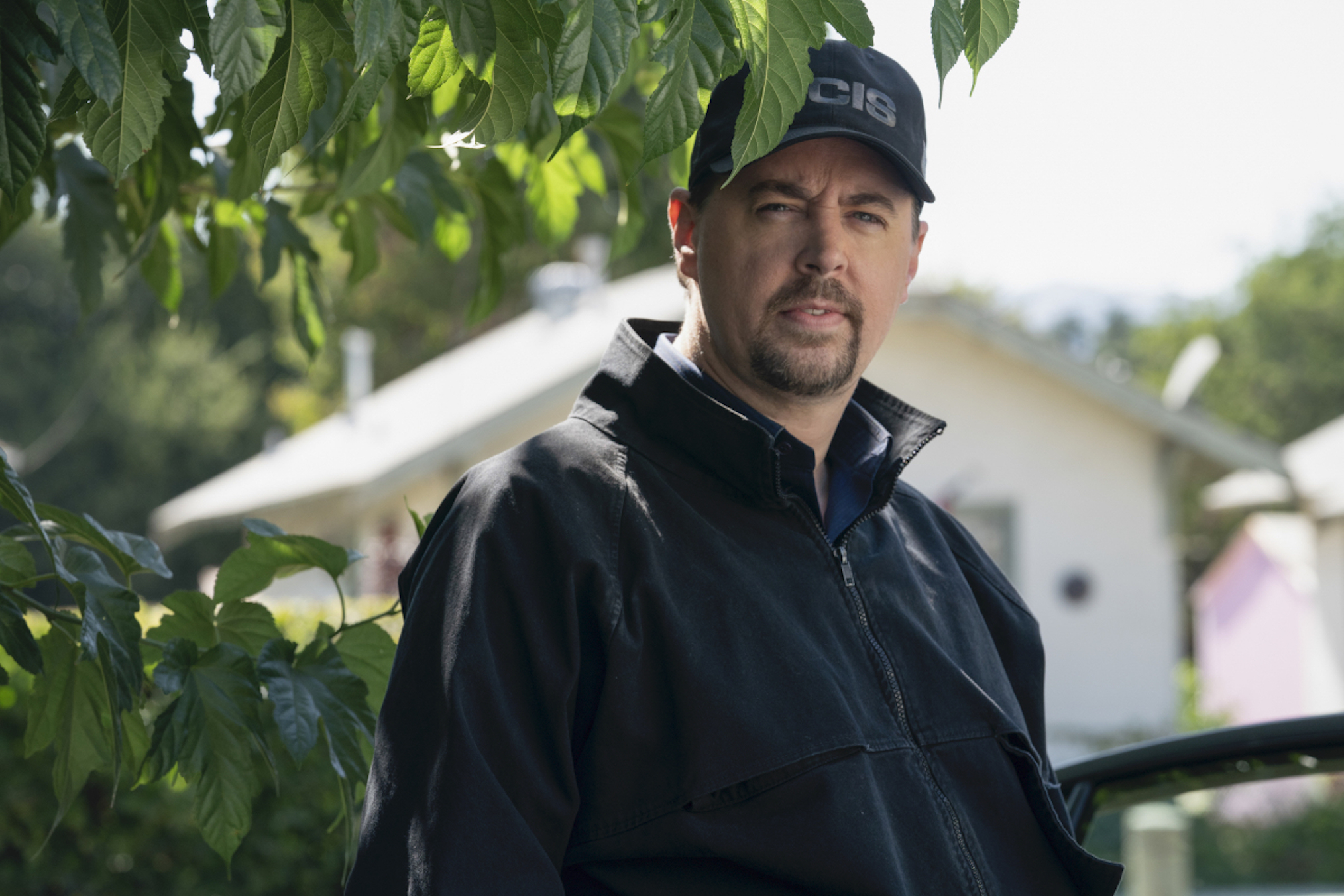
(Erik Voake/CBS)
Sean Murray is one of our real rocks of the show. He’s the go-to actor when you have to give exposition and have it fun and yet be understood. He’s just such an underrated actor, and he has grown immensely. He’s been acting his whole life, he’s a child actor, but he’s really come into his own, especially this year. He’s had a couple really great episodes.
Monreal: And having seen the growth of the relationship between Gibbs and McGee over the 17 seasons, it’s really what grounds the show.
Joe suggested to Gibbs that talking about what he saw in the war might make him “lighter.” Is that something we could see in Gibbs going forward?
Cardea: The Gibbs this past season, maybe the past two seasons, is a character that’s been opening up, and Gina took it to a whole new level in this episode, that he’s going to start talking about his feelings. We’re seeing a softer side to Gibbs, for sure.
Monreal: And Mark Harmon is really just such a master at allowing the character to evolve in meaningful ways, but still keeping the core of the character true to who he is. His talent is just unmatched. He does these things that we don’t even have to write a line for; it’s just a look and it says a million words.
Cardea: I felt a lot of people after watching this episode were going to talk about Christopher Lloyd’s performance, which is phenomenal, but for me, the real performance in the show is Mark. He’s the rock and the core of this entire show.
You mentioned the McGee-Delilah episode. What other episodes originally planned for this season will we see in the next? Would you have returned to the counterfeit opioids case for the finale?
Cardea: The opioids will come back next year.
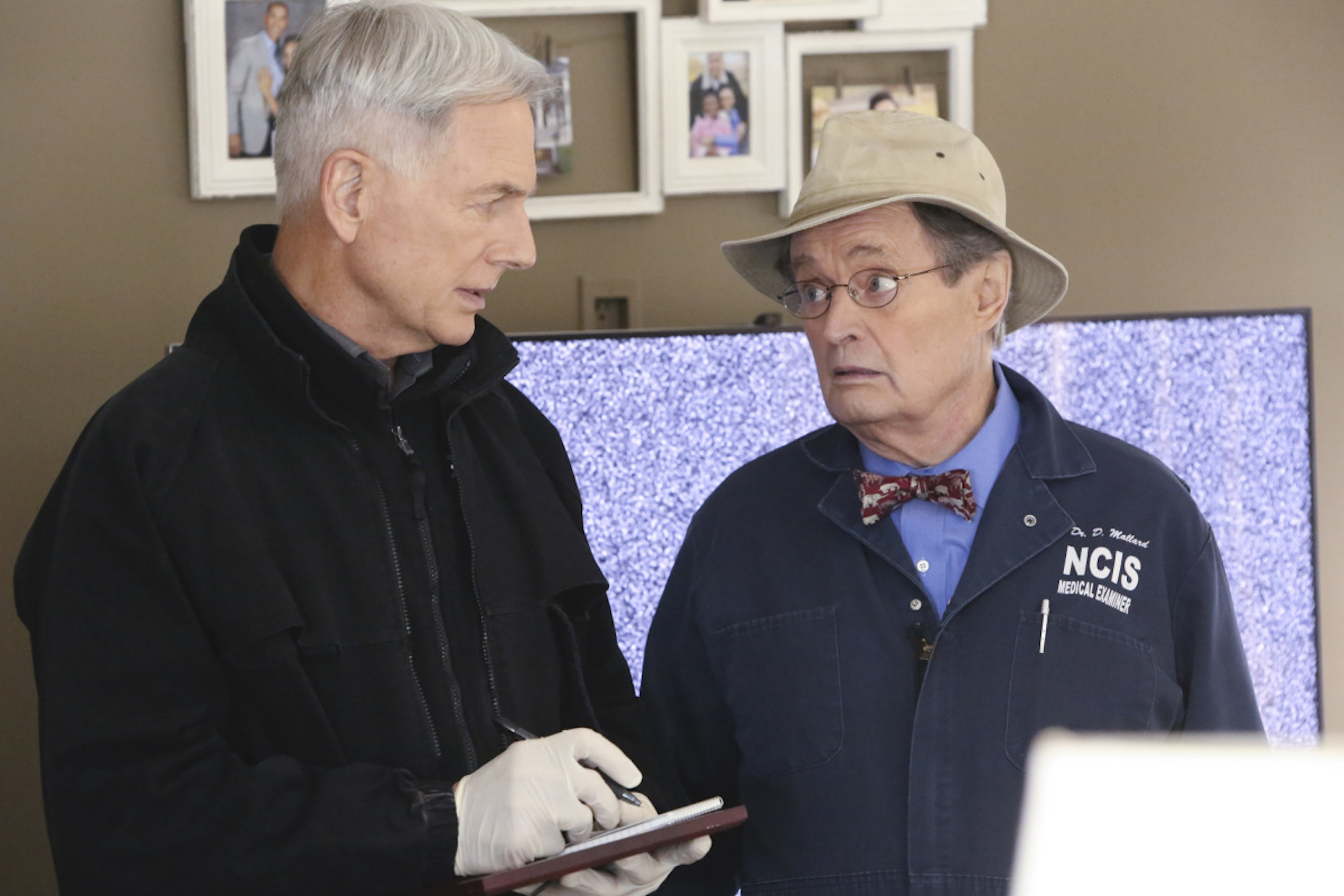
(Patrick McElhenney/CBS)
Unfortunately, this was Episode 398. About a week and a half after we shut production, we were supposed to start Episode 400, which is a huge milestone for us. That episode is completed and ready to go. That will probably be shot second next year and be shot as Episode 400 and air as Episode 400. It’s a very special episode. It’s about Gibbs and Ducky and how they met. A case brings them back to 20 years earlier.
There were two other scripts that were completed and ready to go, and one was the Delilah-McGee script, and there was one episode that was a day away from the start of production. Those sets are built, so when we locked the stages up, they’re just sitting there ready to go. Actors have been cast, and props have been built.
You’ve been teasing the possibility of a romantic relationship for Bishop and Torres but got to explore it in a different way in “Ephemera.” What did you want to do with those two and where do you see them going next?
Cardea: They’ve become very close and very dependent upon each other, and our show has a history of playing with relationships like that. There’s certainly the Tiva relationship for so many years that the audience has seemed to enjoy, and they seem to enjoy this relationship now. We will pursue that. We’ll keep looking at that.
Looking back on the season, you brought Ziva back — and Gina, I have to say what an amazing job you did writing “Out of the Darkness” and “The North Pole” — and you ended her arc with her going back to her family. Do you see her story closed for now or could you revisit that later?
Monreal: It was just such an honor to work on those episodes and to work with Cote [de Pablo] again. It was really great having her back and seeing her reunite with our original characters and interact with our new characters.
Cardea: I’m so glad you recognized Gina’s contribution. When we first even remotely considered bringing Ziva back, there was a secret meeting between Steve Binder, myself, Mark Harmon, Cote, and Gina. Gina was brought in from Day 1. Gina came up with the basic arc of what the four episodes were going to be. We’d only continue that arc as long as Gina’s willing to do it.

